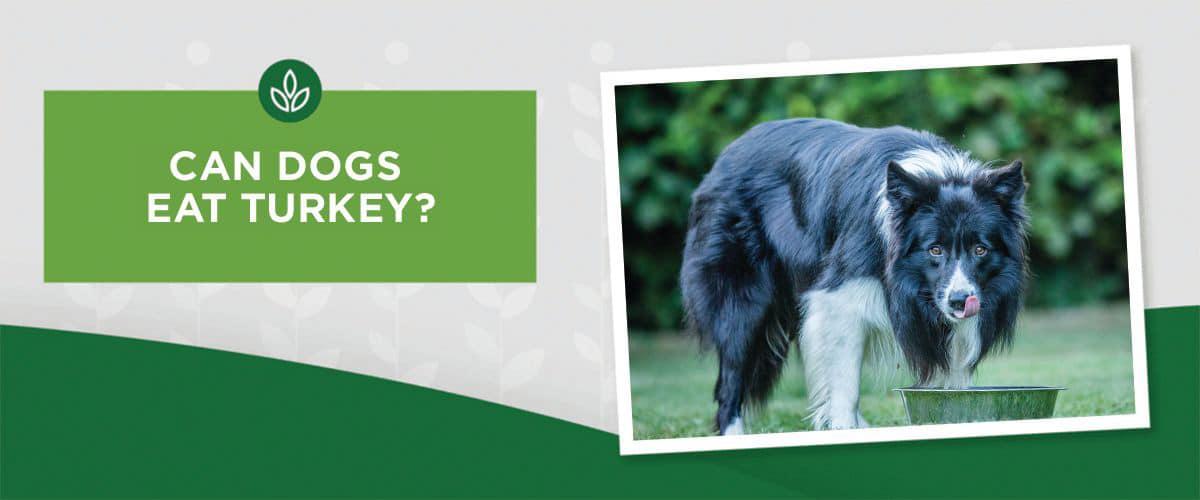Can Dogs Eat Turkey? Benefits and Safety
Feeding your canine companion is more than just a daily routine; it’s an opportunity to provide them with the best nutrition possible. As the holiday season approaches, and the aroma of a perfectly roasted turkey fills the air, many dog owners wonder if it’s nutritious or safe to share this poultry with their furry companions.
While our dogs often beg for a taste of our meals, the safety and nutritional effects of slipping your dog some turkey from your plate is not as straightforward as it may seem. In this guide, we’ll explore what to keep in mind when feeding turkey to dogs, discussing potential benefits and risks, helping you make informed decisions about what ends up on your pup’s plate during the holidays and year-round.
Health Benefits of Turkey for Dogs:
Turkey offers many health benefits for your pup. Outside of holiday table scraps, if you are considering incorporating turkey into your dog’s diet, it’s important to understand the impact it can have on their overall well-being.
Turkey is an excellent protein option for dogs, offering a lean protein source, essential nutrients, and suitability for dogs with allergies to other proteins.
- Lean Protein Source: Turkey is a lean meat that provides high quality protein, which is essential for building and repairing tissues in a dog’s body. It is rich in essential amino acids and omega-3 fatty acids, making it a valuable addition to your dog’s diet.
- Low in Fat: Compared to some other protein sources, turkey is relatively low in fat. This can be beneficial for dogs, especially those with dietary restrictions or weight management needs.
- Rich in Nutrients: Turkey contains various essential vitamins and minerals, such as B vitamins (including B3, B6, and B12), which are vital for energy metabolism. Additionally, turkey offers selenium, which acts as an antioxidant and promotes metabolic function.
- Tryptophan: Turkey is known for its tryptophan content, an amino acid that supports the production of serotonin in the brain.
- Skin and Coat Health: The omega-3 fatty acids found in turkey can promote a healthy skin and coat health.
- Digestive Health: Turkey, when prepared without added seasonings or spices, is generally easy on a dog’s digestive system.
- Allergen Alternative: For dogs with food allergies or sensitivities, turkey can be a suitable alternative to other meats, such as chicken or beef.
While turkey offers various health benefits, it’s crucial to introduce, prepare and serve it in a way that’s safe for your dog. Remember to always consult your veterinarian before making significant changes to your dog’s diet, especially when introducing new foods.
Safely Introducing Turkey into Your Dog’s Diet:
Safely introducing turkey kibble or turkey wet food into your dog’s diet can be a simple and nutritious way to diversify their meals. Here’s some things to keep in mind while you make the switch:
- Choose High Quality Turkey Recipes: Start by selecting an all natural, high quality turkey dog kibble or wet food that features turkey as the primary ingredient. If the turkey protein is the first ingredient listed, that means high levels of turkey protein is included in the recipe.
- Transition Gradually: Abrupt dietary changes can upset your dog’s digestive system. When introducing turkey kibble or wet food, begin by mixing a small amount (around 10-25 percent) of the new turkey food with your dog’s current food. Gradually increase the proportion of the new food over the course of 7 – 10 days, until it becomes their primary food.
- Monitor Your Dog’s Reaction: Keep a close eye on your dog during the transition period. Look for signs of any digestive issues, such as diarrhea or vomiting. If you notice any adverse reactions, slow down the transition process or consult your veterinarian. Learn more about symptoms of changing your dog’s food too quickly here.
- Maintain Adequate Hydration: Ensure your dog always has access to fresh water. Dietary changes can make them thirstier, and proper hydration is essential.
- Portion Control: Monitor your dog’s weight and adjust portion sizes as needed. Follow the feeding guidelines provided on the turkey kibble or canned food packaging, and keep in mind your dog’s size and activity level. Remember, not all dogs have the same caloric needs. If you have questions, work with your vet.
- Utilize Canned Food (Optional): If your dog enjoys variety, you can offer canned food on top of their kibble. This is especially ideal for picky eaters as it can be more palatable for your pup. Learn more about mixing wet and dry dog food.
- Regular Vet Checkups: Continue to schedule regular vet checkups to ensure your dog’s overall health and well-being. Discuss their diet with your veterinarian to make necessary adjustments.
Keep in mind that every dog is unique, and some may take longer to adjust than others. Patience and gradual transitions are key to making this change a smooth and enjoyable experience for your furry friend.
Safely Feed Your Dog Turkey During Holidays:
It can be tempting to feed your dog turkey scraps during the holidays. So, if you or a family member insists on feeding your dog leftovers from the table, it’s important to use caution. While turkey can offer health benefits when prepared and served properly, sharing table scraps can introduce unnecessary risks. The following preparation tips can help.
- Plain and Boneless: When sharing turkey with your dog, opt for plain, boneless, and skinless turkey meat. Avoid seasoning it with ingredients like garlic, onions, or excessive salt, which can be harmful to dogs. Plain, cooked, and non-seasoned turkey is the healthiest option for your furry friend.
- Cooked Thoroughly: Ensure that the turkey is thoroughly cooked. Raw turkey can carry harmful bacteria like salmonella, which can be dangerous for dogs and humans alike. Make sure the meat reaches an internal temperature of at least 165°F (74°C) to kill any potential pathogens.
- Moderation is Key: While turkey can be a healthy addition to your dog’s diet, it should be given in moderation. Too much of any new food can upset your dog’s stomach, so start with small portions to see how your pup reacts. If you have questions or concerns, consult your vet.
- Avoid Bones: Never feed your dog turkey bones, as they can splinter and pose a choking hazard or cause internal injuries. Bone fragments can also damage your dog’s digestive tract.
- Remove Gravy and Stuffing: If you’re serving turkey as part of a holiday meal, be cautious about gravy and stuffing. These additions often contain ingredients that can be harmful to dogs, including garlic, onions, and spices. Because of this, it’s best to keep these side dishes away from your dog’s bowl.
- Consult Your Vet: Always consult your veterinarian before introducing new foods into your dog’s diet. They can provide guidance specific to your dog’s individual needs, considering factors such as age, breed, weight, and existing health conditions.
- Watch for Allergic Reactions: Some dogs may be sensitive or allergic to turkey, just like any other food. Watch for signs of allergic reactions, such as itching, vomiting, diarrhea, or changes in behavior. If you notice any adverse effects, discontinue feeding and consult your vet.
Keep in mind that the safest way to integrate turkey protein into your pup’s diet is to consult your veterinarian and have them help you find an all natural diet that prioritizes turkey protein.
By following these tips, you can safely share the joy of turkey with your dog during the holiday season and beyond, however, there may be an even better alternative!
Alternatives: Turkey Bone Broth for Dogs
If you want to treat your dog to a taste of the holiday season, consider safe alternatives like Nature’s Logic’s natural, nutrient dense, turkey bone broth for dogs. This option allows you to add a touch of turkey flavor to your dog’s meal without the risks associated with bones or seasonings. Whether added on top of their kibble or mixed with warm water, bone broth offers a safe way to add a taste of turkey to your pup’s diet while also offering them increased hydration.
Turkey for Your Dog’s Life Stages
Understanding your dog’s evolving nutritional needs is the key to ensuring their health and well-being at every stage. From the boundless energy of puppies to the wisdom of senior dogs, each life phase brings its own unique demands that can benefit from a diet that includes turkey.
While it’s natural to be tempted to share a meal that includes turkey with your furry companion, especially during holidays like Thanksgiving, it’s important to remember that your dog’s dietary requirements differ from your own. Feeding your pet from the table can introduce unnecessary risks, especially if the food contains bones, seasoning, fat, or skin. Instead, opt for turkey bone broth or a specially formulated turkey dog food, which is designed to provide the balanced nutrition your pet needs.






